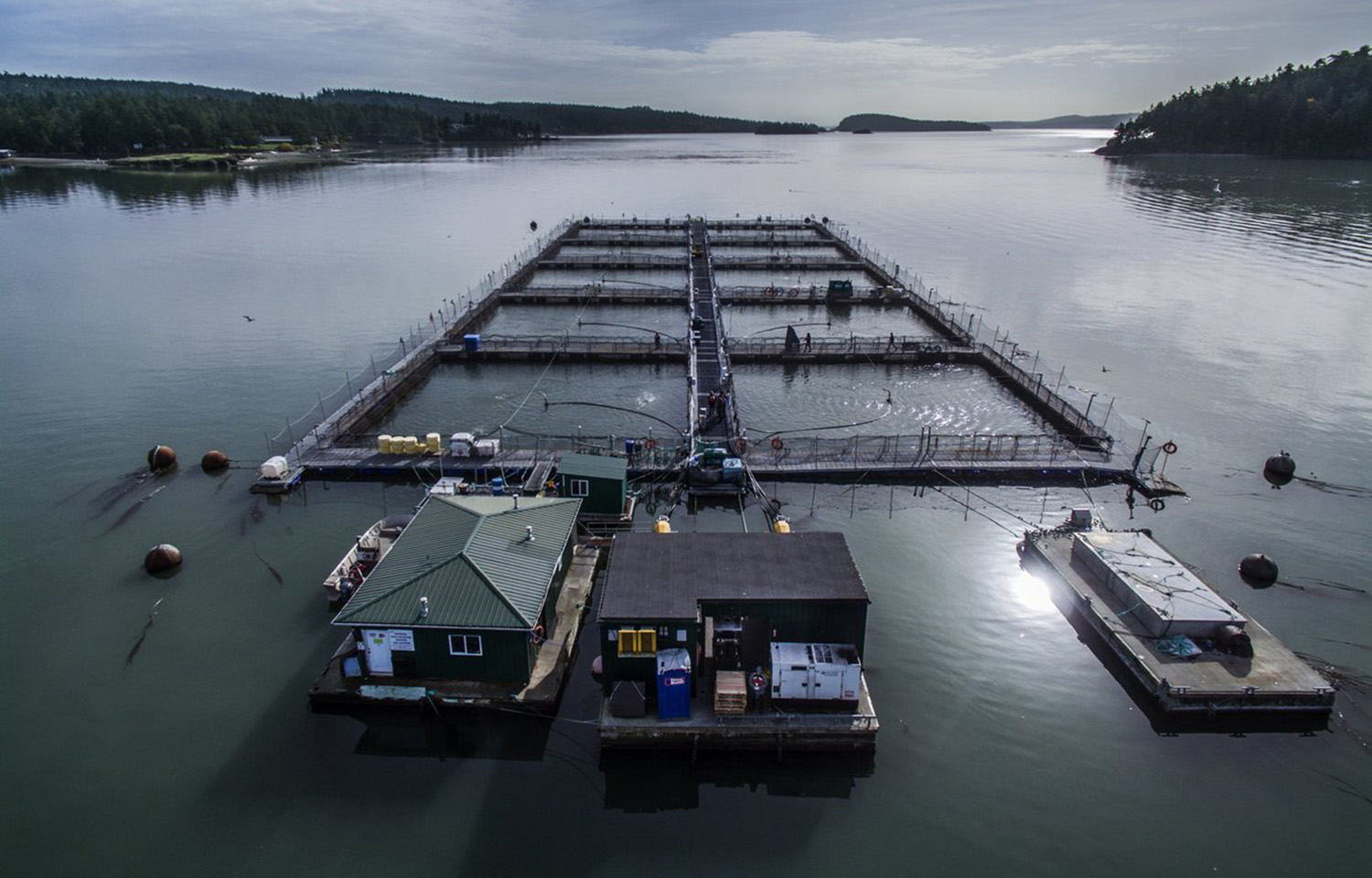Cooke Aquaculture Pacific is dropping its appeal of the Washington State Department of Natural Resources’ decision to terminate two steelhead trout farming licenses it had in Puget Sound in 2022.
Cook said it filed a motion with the Washington Superior Court to dismiss its appeal seeking to overturning a November 2022 ruling from the Washington DNR ending Cooke’s leases at its Rich Passage and Hope Island steelhead trout farms.
Saint John, New Brunswick, Canada-based Cooke filed suit in December 2022 alleging the decision did not give the company enough time to safely harvest its fish and remove equipment from the sites. In January 2023, it won a motion delaying imposition of the ruling, which gave Cooke an additional three months to clear its sites.
“Since the injunction was issued against DNR in January 2023, Cooke has endeavored to obtain public records from DNR that it believes are needed to allow for a fair appeal hearing before the court on the issue of whether DNR properly denied Cooke’s lease applications,” Cooke Vice President of Public Relations Joel Richardson said in a statement. “Despite the request being pending for almost a year, DNR refused to work with Cooke on the timeline to provide records and has never provided any substantive responses that would allow Cooke to explain to the court the arbitrary basis for the lease denials. Based on the number of records that DNR claims are responsive to Cooke’s request, at the rate DNR has produced records to date, it would take another six to seven years for all responsive records to be produced by DNR, which is an untenable and inconceivable situation.”
Cooke said its case cannot be proved without additional access to DNR records.
“A further hearing on this matter is futile without Cooke having an opportunity to review DNR’s internal records and ensure the record before the court is complete. Such a hearing would be a waste of judicial resources and everyone’s time; therefore, Cooke has filed a motion to dismiss its appeal,” Richardson said.
Richardson said the Rich Passage and Hope Island sites were actively farmed for more than 40 years, indicating the DNR has a robust collection of historical data showing the farms did not have an adverse impact on the environment. He noted the Washington Department of Fish and Wildlife approved Cooke’s five-year trout-farming permit in 2019 after conducting an extensive review under Washington Environmental Policy Act. It also received revised water quality permits from Washington’s Department of Ecology for the sites in 2020.
Cooke switched to farming steelhead in the pens after Washington’s legislature voted to phase out the farming of non-native finfish. The legislation came after at least 300,000 Atlantic salmon escaped from a Cooke farm near Cypress Island in August 2017.
But Cooke’s farming operations in Washington were dealt a death blow by an executive order issued by the Washington DNR Commissioner Hilary Franz in November 2022 prohibiting all net-pen aquaculture on state-owned aquatic lands.
“As a result of DNR Commissioner Hilary Franz’s arbitrary decision, over 100 Washington fish farming professionals including farm managers, veterinarians, hatchery technicians, truck drivers, processing plant workers and vessel crew have since been forced out of their jobs by Franz following the baseless closure of locally established fish farms,” Richardson wrote. “Marine aquaculture farming is one of the healthiest and most efficient ways to feed the population with minimal environmental impact, the lowest freshwater use and the lowest carbon footprint of any animal protein. Aquaculture farming and the associated supply chain are a vital part of job creation and domestic food production needed to curb a massive seafood deficit where 90 percent of seafood consumed in the United States is imported. Wild fish catches cannot meet the projected demand for seafood, and aquaculture is essential to preserving wild fisheries. As such, Cooke continues to work with the Jamestown S’Klallam Tribe and pursuing projects that allow the Tribe to provide for its people and that foster sustainable seafood production on the Olympic Peninsula.”
Cooke and the Jamestown S’Klallam Tribe filed separate lawsuits challenging the validity of the executive order. Most of Cooke’s claims were thrown out by Washington Superior Court Judge Indu Thomas, but the tribe’s suit is faring better, with Jamestown S’Klallam Tribal Chairman and CEO W. Ron Allen confident a victory is forthcoming.








